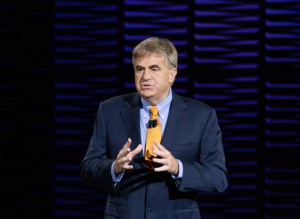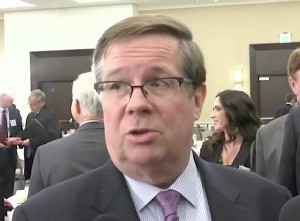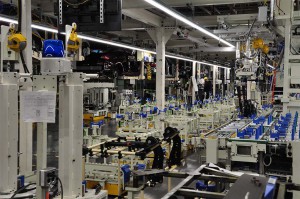
Toyota EVP Bob Carter noted that despite the popularity of trucks and SUVs, cars still about for 4 million sales.
Toyota officials recently reiterated the company has no intention of leaving the passenger car business.
Speaking at an event in Detroit last week, Bob Carter, executive vice president – sales for Toyota Motor North America, said the Japanese automaker has every intention of remaining in the passenger car business.
Carter noted even as trucks and utility vehicles grow in popularity, consumers in the U.S. are expected to buy 4 million passenger cars this year. “At 4 million units, the passenger car market is bigger than the market in most countries,” said Carter. “Cars are very important.”
Carter’s remarks echo those of Toyota North America CEO Jim Lentz, who said during a visit to Detroit that Toyota will remain a full “full-line manufacturer” in the U.S. even as demand contracts sedans and compact cars shrinks.
(Toyota’s U.S. chief says more tariffs will hurt U.S. auto sales. Click Here for the story.)

Toyota's Jim Lentz expressed concern about the imposition of new tariffs and the impact they'll have on the auto industry.
Toyota is mindful of the trends that have sharply reduced sales of passenger cars in the U.S. In fact, sales of passenger cars in the U.S. have dropped to levels below those seen during the Great Recession of 2008-2010 recession, Lentz said. Moreover, Toyota’s car sales are down nearly 12% through October while truck and SUV sales are up 8%.
However, market demand appears headed for equilibrium with passenger cars accounting for about 30% of all sales in the U.S. Light trucks, vans and utility vehicles account are expected to account for the other 70% of new vehicle sales, Lentz said.
While Fiat Chrysler N.V., Ford Motor Co. and General Motors Co. are dropping out or reducing their presence in the passenger car segments, despite the fact that the midsize segment of about 1.8 million units, plus the compact segment, which accounts for another 1.8 million units, are still very substantial and very attractive targets, Lentz said.
“There’s no way I’m going to walk away from that,” Lentz said. “We are always going to have a bias toward passenger cars.”
(Click Here for details about Trump, White House backtracking on China tariff deal.)
In addition, the midsize and compact passenger car segments play to Toyota’s traditional strengths, Lentz said added. “I think you’ll see Honda, making cars as well,” he said.
Lentz said capacity utilization at Toyota’s Georgetown plant where the Camry and Avalon are built was holding at 85%, but it has slipped to about 78% at the plant in Blue Springs, Mississippi, where the Corolla is assembled. The Mississippi plant is scheduled to begin building the next generation Corolla next spring, he said.
Toyota’s North American rivals such Ford, Fiat Chrysler N.V. and General Motors, are in the process of shifting away from passenger cars.
At the same time, competition is intensifying in areas such as in midsize trucks where Toyota has big market share. The arrival of new competitors such as Ford Ranger and Jeep Gladiator might reduce Toyota share but at the same time expand the entire segment in a way that benefits Toyota, Lentz. “We have an awful lot of loyal Tacoma buyers,” he said.
(To see more about the Supra and what other surprises Toyota’s bringing to the NAIAS, Click Here.)
Lentz said that U.S. car sales this year probably will fall below what they were in 2010 during the financial crisis. “There is a depression on the passenger car side,” he said.

